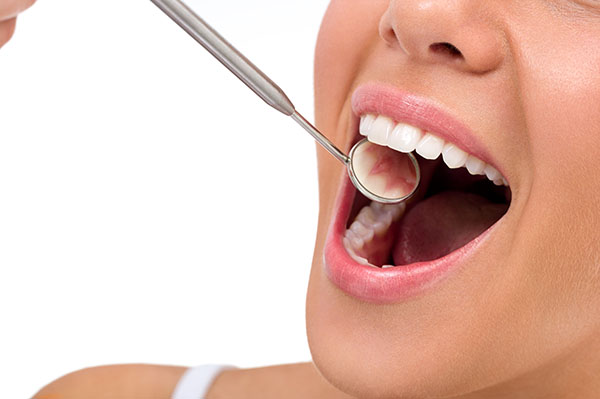Important FAQs About Implant Supported Dentures

Implant supported dentures replace missing teeth with a set of teeth that look, feel, and function very similar to natural teeth. There are many benefits to choosing implant-supported dentures. However, it is important to understand answers to common questions about implant-supported dentures when deciding if they are right for you.
Implant-supported dentures FAQs
The most frequently asked questions that dentists receive in regard to implant-supported dentures deal with the type of material used to make implant-supported dentures, who makes an ideal candidate, and how they are different from traditional dentures. This review discusses answers to these frequently asked questions and more.
What are implant-supported dentures made of?
Implant-supported dentures are made of acrylic resin material. This provides them with an ideal appearance that is indistinguishable from natural teeth while still providing the strength necessary to handle the daily pressures from tearing and chewing food. The dental implants are made of a titanium alloy material. This material allows the dental implants to fuse together with the jawbone for a secure hold of the dentures.
Who is the ideal candidate for implant-supported dentures?
Patients who are missing one or more teeth may be ideal for dental implants. However, implant-supported dentures are specifically for patients with multiple missing teeth. Patients should also have ideal oral health and enough healthy jawbone to support the implants. The dentist can recommend treatment before implant placement, if necessary, to ensure the patient has ideal oral health for treatment.
How are implant-supported dentures different from traditional dentures?
The primary difference between implant-supported dentures and traditional dentures is that implant-supported dentures are permanently in the jawbone. This allows for other notable benefits as well, such as the ability to preserve jawbone density in the jaw, which traditional dentures are not as capable of doing. Implant-supported dentures also last much longer on average and require less daily care than traditional dentures.
Is the implant-supported dentures process painful?
There are some procedures during the implant-supported dentures process that are minimally invasive. Primarily, the placement of the dental implants may require a short recovery period. However, the procedure itself is not painful, as the dentist or oral surgeon can use anesthesia to help ensure a comfortable experience.
How can I care for my new teeth after treatment?
As mentioned, implant-supported dentures require far less care than traditional dentures. However, caring for your implant-supported dentures is still very important. Patients can care for their new smiles the same as they would natural teeth. This should include brushing, flossing, and using mouth rinse as directed, along with regular and consistent visits to the dentist for a check-up and cleaning.
Are you interested in implant-supported dentures for teeth replacement?
If you are interested in implant-supported dentures for teeth replacement, then contact our dental team by phone or message today to arrange for an initial visit. On your first visit, we can determine if implant-supported dentures are right for you or if another restorative solution may be a better option to meet your goals.
Are you considering implant-supported dentures in the Kennewick area? Get more information at https://www.gledhilldental.com.
Check out what others are saying about our dental services on Yelp: Implant Supported Dentures in Kennewick, WA.
Related Posts
Are you missing teeth? You are not alone. According to the American College of Prosthodontists, over 36 million U.S. residents have no teeth. An All-on-4® treatment can treat a full arch of missing upper or lower teeth, restoring your ability to chew, speak, and swallow normally while providing a natural look.All-on-4® dental implants are fixed…
Patients lose teeth for a variety of reasons, including tooth decay and trauma. The All-on-4® procedure is an option for patients who want to quickly replace a full set of missing teeth. The All-on-4® procedure's name is a reference to utilizing four dental implants to support an entire upper or lower arch of teeth. Conventional dental…
When you begin wearing dentures, you may experience discomfort for a short period while you are adjusting. However, this process does not have to be complicated. There are many ways to make the adjustment more manageable and more enjoyable.Here are three reasons you can easily get through the first few weeks of wearing dentures.If you…
A set of dentures is a tooth replacement solution for people who have lost one or more teeth. It enhances the look of teeth while also restoring their function. Read on to learn more about how dentures are used for restoring lost teeth and gums.The number of missing teeth on the jaw determines the sort…


